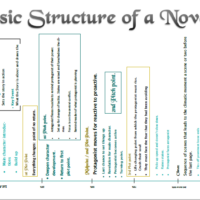
by Anna Johnstone | Nov 8, 2022 | Offers, Service
Hi all.
In the last eighteen months, I have been proofreading and copyediting the business emails and letters of an ESL client. Not only is this proving to be hugely rewarding work (I love being helpful) but it’s a service I am keen to extend to a wider audience. If you, or anybody you know, would benefit from this service please share this post with them, and I would be delighted to hear from them.
While free tools like Grammarly have their uses they can be a touch on the comma-happy side. If you want that personal touch of having a person at the other end of the service, then there is no substitute for hiring an editor to double-check your business correspondence is top-notch before you send it out.
Benefits include:
- No upfront charges.
- Work is itemised and invoiced monthly rather than per item. I will invoice for all the work submitted in a given month on a rolling account that is free for you to stop at any time. No contract charges will apply.
- No set minimum amount of work is expected. If you only have one or two letters or emails for me to check per day then that is absolutely fine. Just email them to me and send me a text to let me know and I will get them back to you as soon as I can: usually within the hour depending on how busy I am.
- All work is priced at a set rate per word for you so you will know exactly how much it will cost before you send it.
Service Ts & Cs
- Invoices are issued on the first of each month and are due for payment by the end of the 15th.
- The client acknowledges that by sending work they are agreeing to pay for work completed on time and in full.
- Failure to pay on time will result in late payment fees of £10 per week and withdrawal of all services until the account is clear.
- My working hours are between 9:30 am and 5 pm GMT Monday to Friday. Work sent for completion outside these times will be subject to a 50% increase.
by | Apr 7, 2017 | Advice, Blog
Proofreading and copyediting, while not nearly as entertaining as the writing process to some (a lot of us quite enjoy it), is still important. For many authors who don’t outline editing is a chance to iron out plot holes and check character arcs. For others, it’s a chance to flesh out some parts you might rush through just to finally finish creating the bones of the story but that’s the bigger picture. This post covers some of the reasons why DIY editing, is not always a good idea. There is no substitute for properly and carefully checking your own work for errors or, if the mere idea of proofreading sends you straight to the Land of Nod, hiring someone like me.
1. It won’t catch caption errors, transpositions, inconsistent formatting or repeated text.
There is no way around it. So long as you’ve spelled each individual word correctly, it will not bring it up. The red and blue squiggly things in Word are a guide but they are only as reliable as to human being who programmed them. A spellcheck is set to look for individual words but it doesn’t always see them in context. Typing ‘form’ instead of ‘from’ won’t be picked up as an error. A spell checker is no substitute for knowing the rules of grammar and punctuation. How will you know if the suggested change is correct if you don’t understand how commas work in the first place. You’ll never catch every mistake on your own, but you have a good chance of creating some new ones if you rely solely on the automatic functions of your word processor.
2. Proofreading is more than a manual spell-check.
This is the last stage of editing prior to publication. It’s vital not to leave this stage to chance. It allows you to look for colour variations, layout issues, spacing, typeface consistency, missing items, tense and tone errors, content errors, inconsistent capitalisation, that page numbers are correct, and other formatting problems. In short, this is your polish. No matter the content, presentation matters and sloppy presentation will come back to haunt you.
3. It can’t check for flow, or that the language style suits your audience.
It won’t be able to tell whether your content delivers the content promised in the title. Does the writing style of the meet their expectations? Are the facts correct? If it’s an academic work, are those facts supported by cited evidence? If my spellchecker had been able to check references, I would have had a lot fewer headaches while I was studying for my degree but I would have still checked them for errors myself.
4. It cannot fact-check.
Given enough time to do their homework, a good writer should be able to write about anything. Problems occur when guessing comes in and spellcheck won’t be able to check for accuracy, homophones, mixed metaphors or awkward similes.
5. Over-familiarity with the text.
You’ve been staring at your essay for days. Constructing arguments, deconstructing sources, and now you are finally able to submit your assignment to your tutor. This is the trouble. You will read what you expect to see on the page and this will lead to errors being missed. Even leaving it for a few days will not entirely eliminate this problem. Human memory cannot be trusted. This reason alone is reason enough to recruit an extra pair of eyes. Couple this with the limited ability of your average built-in spell-checker and you have the ideal conditions for missing some very embarrassing gaffes.














